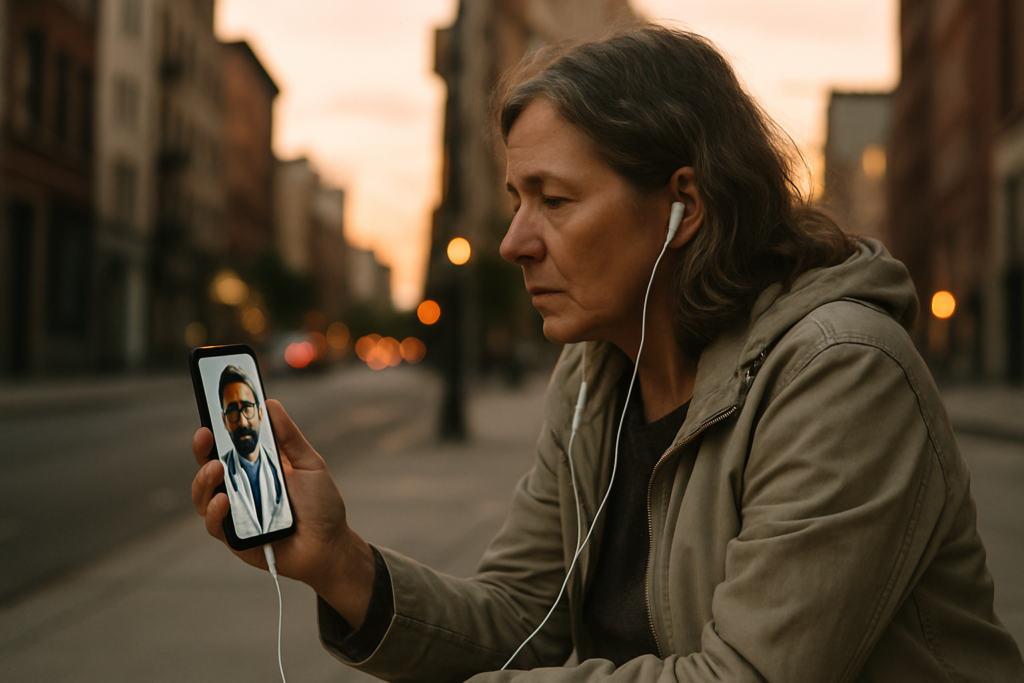Exploring the realm of Virtual Reality (VR) therapies unveils a promising landscape of innovative solutions for mental health challenges. In this article, I delve into the latest research findings that shed light on the efficacy of VR therapies in the realm of mental health treatment.
As technology continues to advance, the intersection of VR and therapy presents a unique opportunity to revolutionize traditional treatment approaches.
Through a critical examination of recent studies and breakthroughs in the field, I aim to provide insights into the effectiveness and potential benefits of incorporating VR into therapeutic interventions. Join me as we navigate through the evolving landscape of VR therapies and discover the transformative impact they hold for individuals seeking alternative avenues for mental well-being.
Overview of VR Therapies
Exploring the landscape of Virtual Reality (VR) therapies reveals groundbreaking strides in addressing mental health challenges. The synergy between VR and therapy presents a realm of possibilities to advance traditional treatment modalities.
By delving into recent studies and innovations, I shed light on the efficacy and advantages of incorporating VR into therapeutic practices. This elucidation underscores the profound impact VR therapies wield in offering unconventional avenues for mental well-being.
Advantages of VR Therapies in Healthcare
Virtual Reality (VR) therapies bring several advantages to healthcare settings, particularly in the treatment of mental health conditions. Let’s explore some key benefits of integrating VR therapies into healthcare practices.
Reduction of Pain Perception
I find it fascinating how VR therapies have been shown to effectively reduce pain perception in patients undergoing various medical procedures. Studies have demonstrated that immersing patients in virtual environments can distract them from the sensation of pain, resulting in lowered pain perception levels.
For instance, a study published in the Journal of Medical Internet Research revealed that using VR during wound care procedures led to a significant decrease in perceived pain levels among patients.
Improvement in Mental Health Conditions
The ability of VR therapies to improve mental health conditions is truly remarkable. Research indicates that incorporating VR into therapy sessions can help individuals manage anxiety, PTSD, phobias, and other mental health challenges effectively.
By exposing patients to controlled virtual scenarios, therapists can create tailored treatment environments that facilitate gradual exposure and desensitization. A study conducted by the American Psychological Association showed that VR exposure therapy was highly effective in reducing symptoms of PTSD in veterans.
Recent Research Studies on VR Therapies
In recent studies on VR therapies, the efficacy of virtual reality in treating various mental health conditions has been a focal point. Let’s delve into specific research findings that highlight the impact of VR therapy on anxiety disorders and post-traumatic stress disorder.
Study 1: Effects on Anxiety Disorders
In a groundbreaking study examining the effects of VR therapy on anxiety disorders, researchers found that immersive virtual environments can effectively reduce anxiety symptoms. By exposing individuals to controlled virtual scenarios that trigger anxiety reactions, therapists can guide patients through exposure therapy in a safe and controlled environment.
This innovative approach allows individuals to confront their fears gradually, leading to a significant decrease in anxiety levels over time.
Study 2: Efficacy in Post-Traumatic Stress Disorder
Research investigating the efficacy of VR therapies in treating post-traumatic stress disorder (PTSD) has shown promising results. By immersing patients in virtual environments simulating traumatic events, therapists can guide individuals through exposure therapy to help them process and cope with their traumatic experiences.
The immersive nature of VR therapy allows for a personalized and controlled environment that promotes gradual desensitization to triggers, leading to a reduction in PTSD symptoms over time.
These studies underscore the potential of VR therapies as an innovative and effective approach to addressing anxiety disorders and PTSD, offering new possibilities for mental health treatment.
Challenges and Limitations of VR Therapies
Analyzing the landscape of Virtual Reality (VR) therapies unveils certain challenges and limitations that warrant scrutiny. While VR therapies exhibit remarkable potential in mental health treatment, several obstacles hinder their widespread adoption and utilization.
- Limited Accessibility: Despite technological advancements, access to high-quality VR equipment and software remains a barrier for many individuals seeking mental health treatment. Not everyone has the resources or infrastructure to benefit from VR therapies, limiting their reach and effectiveness.
- Cost Constraints: The cost associated with VR systems, software development, and maintenance can be prohibitive, making it challenging for mental health facilities and practitioners to integrate VR therapies into their treatment offerings. Cost-effective solutions are crucial to democratize access to these innovative interventions.
- Ethical Concerns: The immersive nature of VR experiences raises ethical considerations regarding patient safety, privacy, and consent. Ensuring ethical practices in delivering VR therapies is imperative to protect the well-being and rights of individuals undergoing treatment.
- Technical Limitations: VR technologies may present technical challenges such as motion sickness, visual discomfort, or technical glitches that can impede the therapeutic process and user experience. Addressing these technical limitations is essential to optimize the effectiveness of VR therapies in mental health treatment.
- Research Gaps: Despite the growing body of evidence supporting the efficacy of VR therapies, there are still research gaps in understanding their long-term effects, optimal treatment protocols, and population-specific outcomes. Continued research is necessary to enhance the evidence base and refine the application of VR therapies in mental health care.
Navigating these challenges and limitations is essential to maximize the benefits of VR therapies in mental health treatment. By addressing these obstacles through innovation, collaboration, and research, we can enhance the accessibility, affordability, and ethical delivery of VR interventions, ultimately improving mental health outcomes for individuals worldwide.
Future Directions in VR Therapy Research
Moving forward, my focus in VR therapy research will revolve around addressing the current limitations to enhance the efficacy and accessibility of these interventions. One of the key areas that I’ll be exploring is the development of more cost-effective solutions to make VR therapy more accessible to a wider population.
By finding ways to reduce the equipment costs or exploring alternative delivery methods, I aim to democratize access to VR interventions for mental health treatment.
Additionally, my future research endeavors will aim to tackle the ethical concerns surrounding patient safety and privacy in VR therapy. I’ll be working on innovative approaches to ensure that patient data is protected and that VR environments are designed with the highest standards of confidentiality and security in mind.
Moreover, I plan to delve deeper into understanding the long-term effects of VR therapy on mental health conditions. By conducting longitudinal studies and comprehensive follow-ups with patients, I aim to fill the existing research gaps and provide more insights into the sustained benefits of VR interventions over time.
Furthermore, I’ll be exploring optimization techniques to minimize technical limitations such as motion sickness in VR therapy. Through the development of tailored protocols and user-friendly interfaces, I aim to enhance the immersive experience of VR therapy while mitigating any adverse effects that may hinder its efficacy.
My future research in VR therapy will be driven by a commitment to innovation, accessibility, ethical practice, and long-term effectiveness. By overcoming current challenges and pushing the boundaries of knowledge in this field, I aim to contribute to the advancement of mental health treatment through VR interventions.




